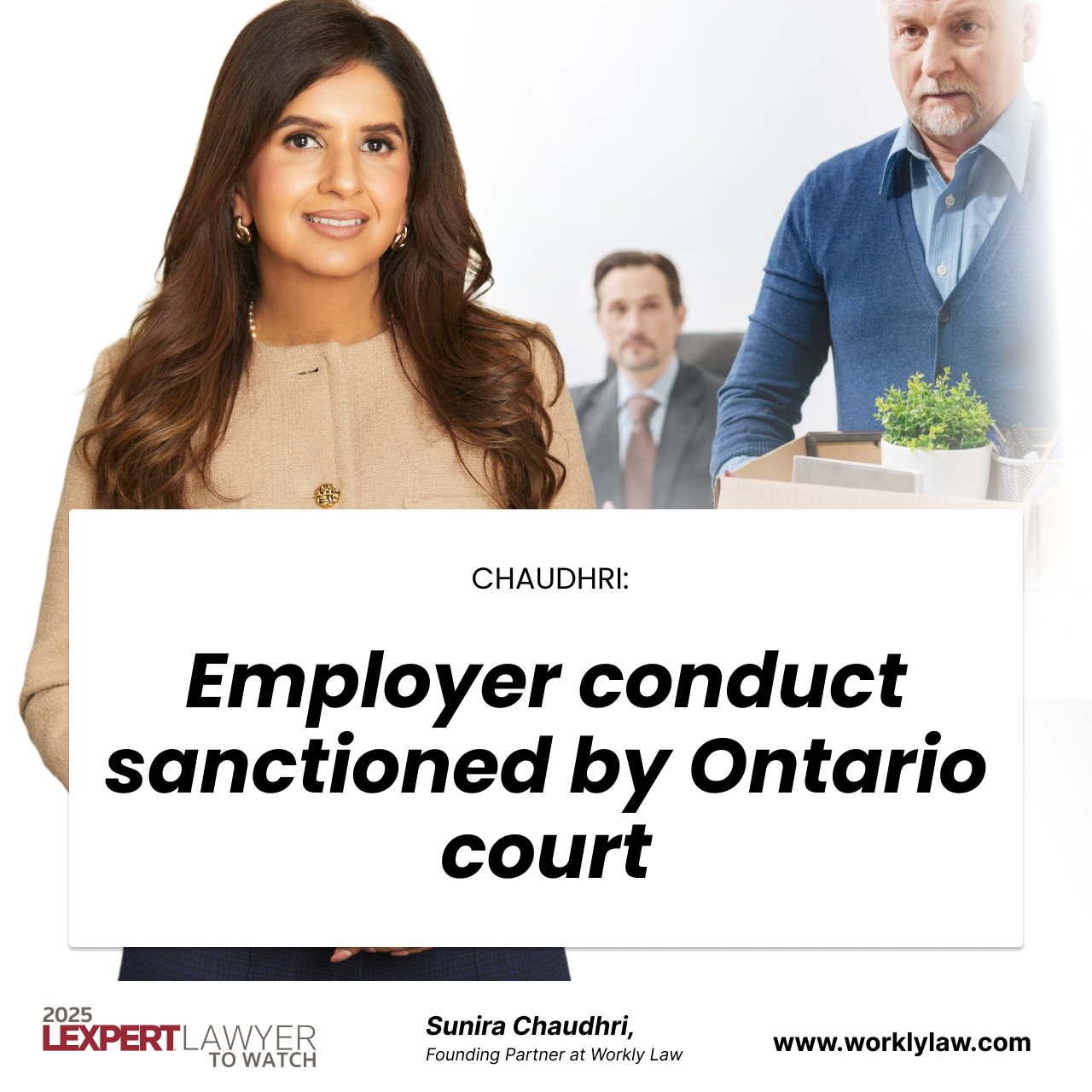Sunira Chaudhri
CHAUDHRI: Employer avoids legal liability in human rights case

A retired judge once told me a legal claim is like a house – the foundation of that house is the written complaint that sets out the facts to support it.
Sometimes there are cracks in the foundation. Where a written complaint fails to articulate every element of every possible cause of action, the house may crumble. Claims can fail.
Such was the case at a tribunal hearing of a housekeeper, Naela Mousa, who was employed at a Best Western from August 2018 until September 2019.
Mousa filed an application to the human rights tribunal of Ontario, alleging discrimination with respect to employment on the basis of sex (sexual harassment), contrary to the Ontario Human Rights Code.
Mousa alleged that her housekeeping coworker, Bing, had massaged her shoulders in the workplace, making her feel uncomfortable. Bing also allegedly told Mousa that she had a “sexy body” and invited the Applicant to her own home for additional massages.
A half-day hearing on the merits of the application was conducted by videoconference on Aug. 7. Best Western did not attend.
When an employer fails to attend a hearing, the hearing may proceed if the tribunal or court is satisfied the employer had sufficient notice to attend. When this happens, the attending party has an open road to provide the decision maker with their own evidence and narrative that goes uncontested.
Here, because Best Western did not attend, the HRTO accepted Mousa’s unchallenged evidence as she described it at the hearing. Of course, she was not cross examined, and her credibility went untested. The HRTO accepted her testimony and concluded that Bing’s actions amounted to sexual harassment.
However, the tribunal determined Best Western could not be held responsible, as the Code excludes vicarious employer liability for acts of sexual harassment or sexual solicitation committed by employees.
The tribunal noted employers do have obligations to maintain workplaces free from discrimination and harassment and to respond to complaints when made aware of them. However, in this case Mousa had not alleged in her Application that management failed to investigate or address her concerns while she was employed.
Just prior to the hearing, Mousa attempted to amend her application to add a failure-to-investigate claim against her employer as well as new allegations of discrimination based on ethnic origin and place of origin. Given, in part, due to the late stage of her requests, the proposed amendments were denied by the HRTO, which noted the prejudicial impact on Best Western.
This case highlights a few important issues.
Firstly, the legal system is steeped in process. Mousa did not get all of her allegations on the table early enough for all parties to explore and respond to. She made ‘eve of trial’ allegations that were too late but would have made a world of difference had they been alleged earlier. By failing to follow the process, all of her allegations were not considered.
Second, liability is technical. It was not enough for the complaint to allege that the purported harassment was made by a work colleague. The complaint had to articulate, with specificity, what Best Western did (or failed to do) in response to the allegations. There was no connection of the proverbial dots. So, while harassment was proven, the connection to Best Western wasn’t there and no liability was found.
While on its face the HRTO is meant to be a forum for everyday employees to launch and pursue discrimination claims, this case highlights how technically precise a complaint must be to achieve success in that venue. I doubt, however, an outcome like this is consistent with the intended mandate of the tribunal.
Houses must be built on strong foundations. As this case shows, attempting to fix a cracked foundation years down the line, won’t save the house.
Have a workplace question? Maybe I can help! Email me at sunira@worklylaw.com and your question may be featured in a future column.
The content of this article is general information only and is not legal advice.
Related articles
POWER: Ontario Minimum Wage Increase Effective October 1, 2025
Effective October 1, 2025, Ontario’s general minimum wage will increase to $17.60 per hour (up from $17.20). This annual adjustment is tied to the Consumer Price Index and affects nearly all employees covered by the Employment Standards Act, 2000 (ESA). For employers, this increase is a timely reminder to review pay practices, budgets, and compliance processes before the fall.
CHAUDHRI: Employer conduct sanctioned by Ontario court
Courts do not want employees to be 'starved' by employers in an effort to have them accept lower packages on termination


